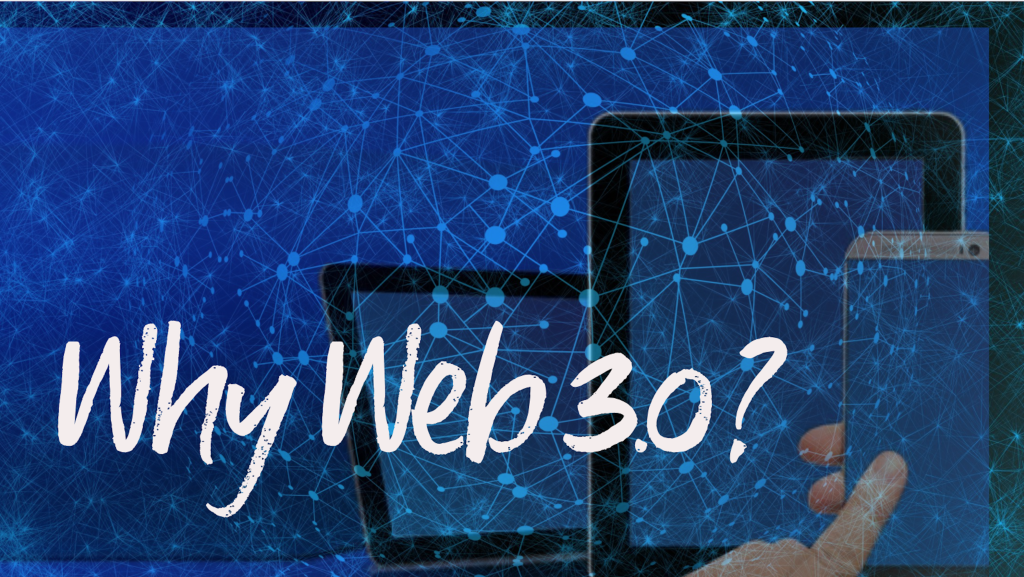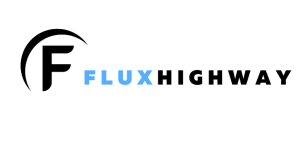We have moved from the static pages of Web 1.0 to centralized Web 2.0 where a few companies control most data. Now Web 3.0 will have users maintain complete control over their data through a decentralized platform utilizing artificial intelligence. The author suggests it will profoundly change our lives, in positive and negative ways, as we become even more interconnected.

Imagine a world where you can own and control all aspects of your digital presence. When a web search delivers you the most accurate and relevant result because it understands the context and concept of your keywords. All your communication is supported by machine learning, artificial intelligence, and blockchain. You not only own your data, but you also receive compensation for the time you spend on the web… There has been a lot of buzz around it lately – the picture you have just painted out in your mind is called Web 3.0.
Human nature dictates that an individual starts evolving when his existence runs into an obstacle. The obstacle needs to be big enough to make us start searching for a solution on how to overcome it. So, what block have we stumbled upon to make us want to change the way the Internet works today? It’s the tool that brought us so much! We can find relevant information in a matter of seconds, we can connect with people from anywhere across the globe and we can work or shop from the comfort of our home.
Why change it?
The main issue that developers of Web 3.0 are trying to resolve is the centralization of power over the current World Wide Web. At this very moment, a handful of companies are controlling and selling gigantic amounts of information that they receive from us daily. While users are enjoying free apps and services online, like Google, Facebook, and Amazon, these powerful companies are keeping track of every search result, every click, every word, and every transaction each one of us makes. This data is being sold to other providers all over the world and is used to target these same users over and over again. Does this notion bother you?
Certain individuals saw this as a big enough obstacle that they started searching for a better version of the Internet and the idea of Web 3.0 was born.
Back in 2001, in the Scientific American article “The Semantic Web”, Tim Berners-Lee described the idea of the so-called Semantic Web as “an extension of the current web in which information is given well-defined meaning, better-enabling computers and people to work in cooperation.” In his vision, the Web didn’t require any central authority approval and no central controlling nodes.
Web 3.0 may not be exactly like Berners-Lee’s Semantic web, but it will be a leap forward to a decentralized network, trust minimization, permissionless use, and an open Internet of Value. All these characteristics are already present in blockchain technology. Blockchain is by definition a decentralized system, governed by its users, and not a single entity. Users take part in communities and are credited for their participation and decision-making with tokens. The use of blockchain is completely transparent, doesn’t require any permission for participation, and is reliable – it doesn’t leave any room for central manipulation. Every single piece of data is checked, reported, and rechecked.
The new era of Internet
You might remember the time when the Internet consisted of only a few individual websites that contained a bit of information and some images. They didn’t offer any user interaction. It was almost impossible to navigate from one page to another. We’re talking about the beginning of the Internet, the Static Web or Web 1.0 (1989-2005).
Then, roughly around 2005, came Web 2.0 which is still in use today. The Social Web was marked by web technologies like JavaScript, HTML5, CSS3, etc. Browsers and search engines began forming everywhere, online services started requesting user credentials, start-ups built platforms such as Facebook, YouTube, Wikipedia, which gave birth to the well-known social networks and infinite amount of user-generated content. The internet became hugely interactive. Web 2.0 ran on a massive database stored on a central server and could therefore be manipulated by central entities at any given time. Our lives have been changed forever.
Forward to the year 2022, where we are giving away our personal information to maintain our comfort of living. This data is then sold to service providers and used to target us from every possible corner. One would argue that this process creates a better user experience for an individual user, but are we really ok with a small group of corporations quietly directing our every step along the path that they have carefully constructed for us? We are being led down the rabbit hole and don’t even know it!
The promise
The promise of Web 3.0 is the following: the Internet will consist of data that is interconnected in a decentralized way. Users will maintain complete control over their data by sharing a copy of the code through blockchain. They will not be pressured in giving up their privacy. By using the online services, they will reap monetary benefits in the form of tokens. This will serve as a strong incentive to grow the network even further – the more the individual platform grows, the more the community of users benefits from it. In comparison, in Web 2.0 the parties who have the most financial gain from Internet usage are the few well-known retail, social media, and communication powerhouses.
Web 3.0 will be supported by artificial intelligence, machine learning, and the semantic web. It will become smarter and will grind an enormous amount of information with near-human-like intelligence. The power of AI systems will run smart programs to assist users and hopefully put an end to the existing centralized systems that enable data exploitation and privacy violation. It will learn how to discriminate between the genuine and the fraudulent to prevent corrupt behaviors such as biased product evaluations, rigged ratings, human errors, etc.
Will our lives change for the better?
The most significant advantage for end-users will be data encryption to protect their information from disclosure. Data will become accessible to users in any circumstance from anywhere and from any device. User interaction will be enhanced even further, ranging from seamless payments to richer information flows to trusted data transfers. Individual personal profiles for different platforms will become a thing of the past. We will need a single profile for all platforms and will keep complete ownership of any given information. No entity will be able to access users’ data without their permission, but users will have the choice to share their profiles and sell their data to advertisers.
Web 3.0 will also have a great impact on problem-solving and intensive knowledge creation tasks. Artificial intelligence will be able to filter out valuable information from an enormous quantity of data and will enable its users to conduct client demand forecasting and personalized customer service, necessary for flourishing businesses.
What about the downsides?
There are always two sides to every story. When Web 3.0 becomes a reality, less advanced computers won’t have the ability to provide all its benefits. Users will need to upgrade their technology to use the new generation of the Internet.
Blockchain is difficult to understand for any new user, which makes them reluctant to use it. This will most likely slow down its popularity at a global level.
Web 3.0 technology is still in its early development stages and is not yet ready for mass adoption. We’re not only talking about technology advancement, but also regulatory aspects of it. There is still a long way ahead of us, before the use of Web 3.0 will become mainstream.
Final thoughts
The new era of the Internet sounds highly disruptive. It has the potential to change business models to their core.
However, the development of Web 3.0 will require a lot of resources and infrastructure and will not be easy. It’s hard to believe that those big corporations that currently hold the monopoly over the Internet data will just stand by and watch while their power gets taken away.
These huge Internet players will probably try to integrate certain aspects of Web 3.0 into their existing platforms and applications, just like Facebook, which already made its first steps towards Web 3.0 by introducing its new Metaverse. What if after all this hype, we end up with a service that is still controlled by the same players as Web 2.0? True believers say there is no place for Facebook in a Web 3.0 world, no matter how hard the social network tries to be part of the next generation of the Internet.
There is also the question about public access to personal data. If we have a problem with Big Tech companies gathering and using our personal information, will the blockchain solve our issues? If you think about it, our data will become even more public when transferred to blockchain.
In the end, it doesn’t matter if Web 3.0 will completely overtake the current Internet structure or just end up as a toolkit that the next Internet is built out of. Regardless of how the Web 3.0 story evolves, it will probably profoundly change our lives. People will become even more interconnected, not only among each other but also with their smart devices, which will run every aspect of our life. Everything will be backed up by artificial intelligence and accessible at any time or place. Web 3.0 is going to be omnipresent.
Exciting and scary, right?
Although the material contained in this website was prepared based on information from public and private sources that FLUXhighway.com believes to be reliable, no representation, warranty or undertaking, stated or implied, is given as to the accuracy of the information contained herein, and FLUXhighway.com expressly disclaims any liability for the accuracy and completeness of the information contained in this website.
Via this https://gocrypto.com/en/why-is-everyone-talking-about-web-3-0/

